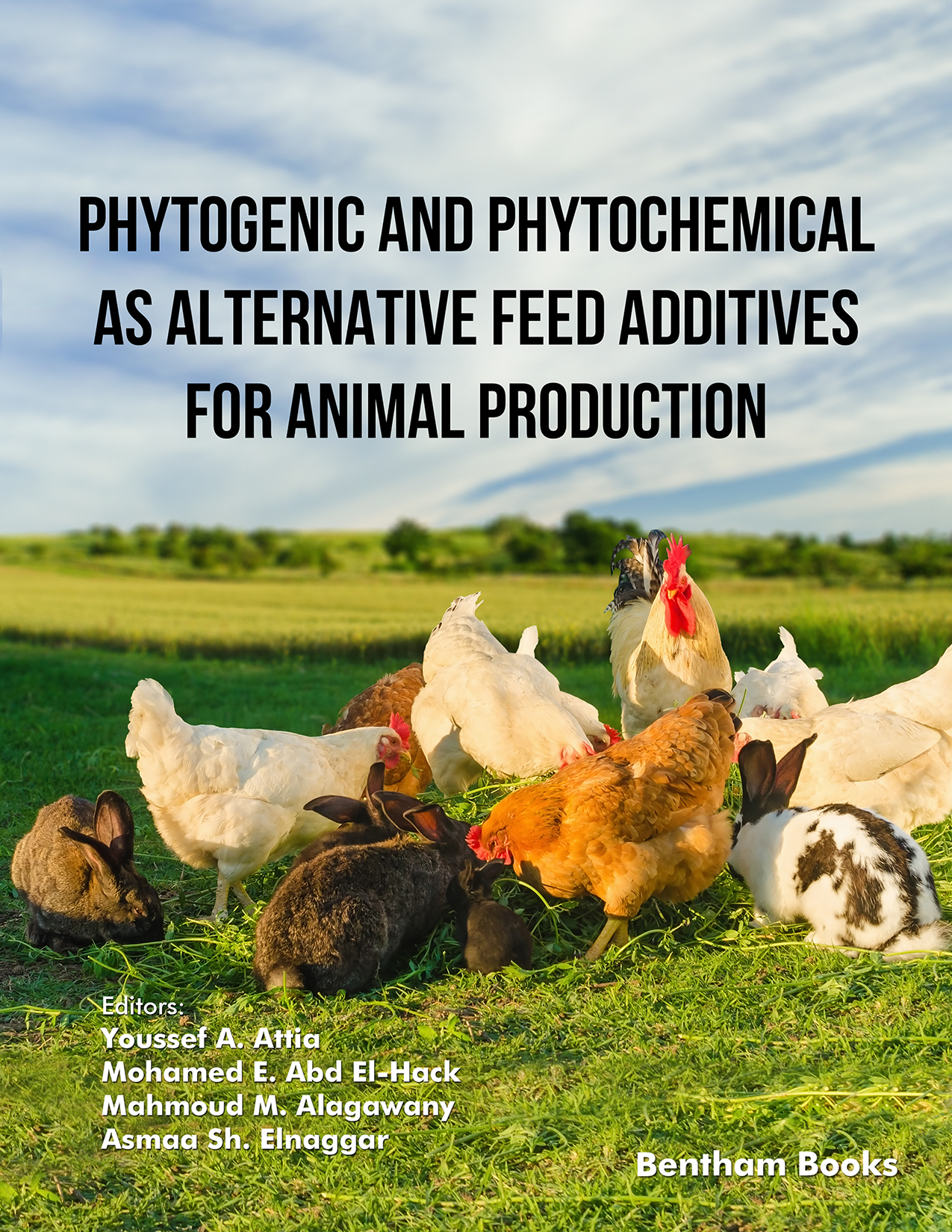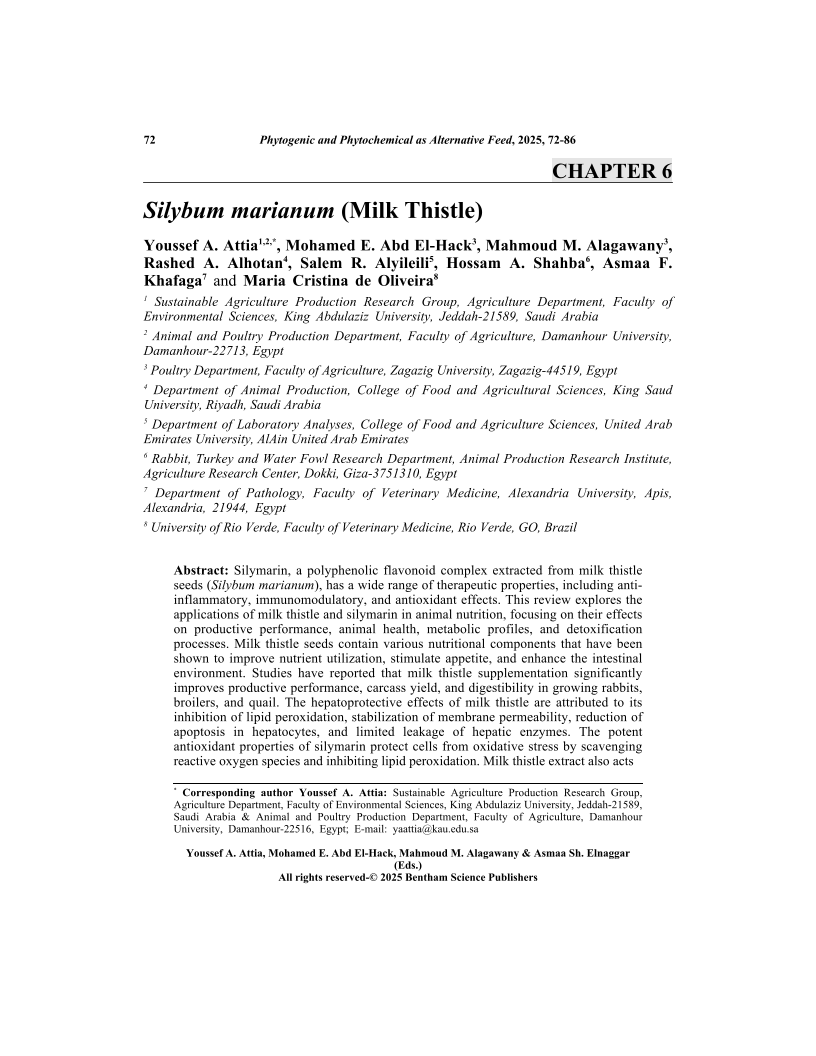Silybum marianum (Milk Thistle)

- Authors: Youssef A. Attia1, Mohamed E. Abd El-Hack2, Mahmoud M. Alagawany3, Rashed A. Alhotan4, Salem R. Alyileili5, Hossam A. Shahba6, Asmaa F. Khafaga7, Maria Cristina de Oliveira8
-
View Affiliations Hide Affiliations1 Sustainable Agriculture Production Research Group, Agriculture Department, Faculty of Environmental Sciences, King Abdulaziz University, Jeddah 21589, Saudi Arabia 2 Poultry Department, Faculty of Agriculture, Zagazig University, Zagazig-44519, Egypt 3 Poultry Department, Faculty of Agriculture, Zagazig University, Zagazig-44519, Egypt 4 Department of Animal Production, College of Food and Agricultural Sciences, King Saud University, Riyadh, Saudi Arabia 5 Department of Laboratory Analyses, College of Food and Agriculture Sciences, United Arab Emirates University, AlAin United Arab Emirates 6 Rabbit, Turkey and Water Fowl Research Department, Animal Production Research Institute, Agriculture Research Center, Dokki, Giza-3751310, Egypt 7 Department of Pathology, Faculty of Veterinary Medicine, Alexandria University, Apis, Alexandria, 21944, Egypt 8 University of Rio Verde, Faculty of Veterinary Medicine, Rio Verde, GO, Brazil
- Source: Phytogenic and Phytochemical as Alternative Feed Additives for Animal Production , pp 72-86
- Publication Date: March 2025
- Language: English
Silybum marianum (Milk Thistle), Page 1 of 1
< Previous page | Next page > /docserver/preview/fulltext/9789815322767/chapter-6-1.gif
Silymarin, a polyphenolic flavonoid complex extracted from milk thistle seeds (Silybum marianum), has a wide range of therapeutic properties, including antiinflammatory, immunomodulatory, and antioxidant effects. This review explores the applications of milk thistle and silymarin in animal nutrition, focusing on their effects on productive performance, animal health, metabolic profiles, and detoxification processes. Milk thistle seeds contain various nutritional components that have been shown to improve nutrient utilization, stimulate appetite, and enhance the intestinal environment. Studies have reported that milk thistle supplementation significantly improves productive performance, carcass yield, and digestibility in growing rabbits, broilers, and quail. The hepatoprotective effects of milk thistle are attributed to its inhibition of lipid peroxidation, stabilization of membrane permeability, reduction of apoptosis in hepatocytes, and limited leakage of hepatic enzymes. The potent antioxidant properties of silymarin protect cells from oxidative stress by scavenging reactive oxygen species and inhibiting lipid peroxidation. Milk thistle extract also acts as a free radical scavenger, protecting against glutathione depletion, and enhancing glutathione peroxidase activity in the brain and kidneys. Furthermore, milk thistle supplementation has been shown to improve hematological parameters, such as leukocyte count, hemoglobin levels, and packed cell volume, in birds exposed to ochratoxin A. The beneficial effects of milk thistle on animal immunity, oxidative stress, performance, and reproduction make it a valuable candidate for use as a feed additive in animal nutrition.
-
From This Site
/content/books/9789815322767.chapter-6dcterms_subject,pub_keyword-contentType:Journal -contentType:Figure -contentType:Table -contentType:SupplementaryData105

